Djamu Regional
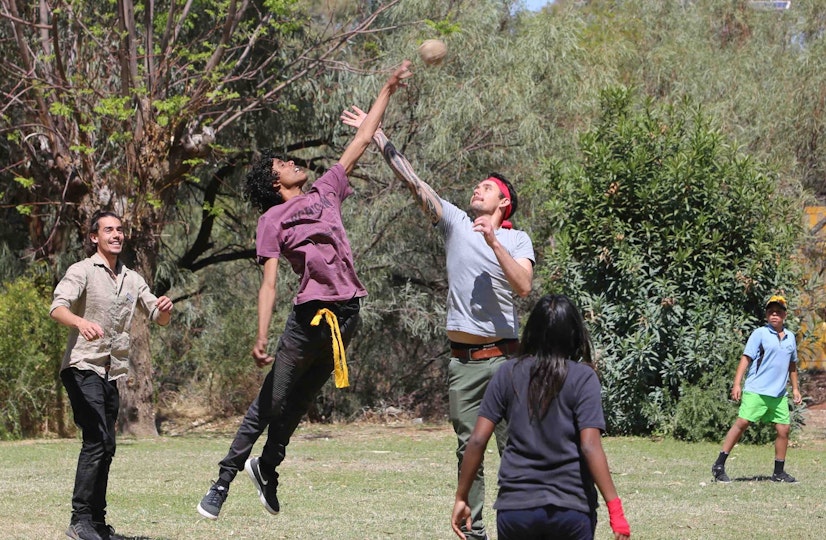
Djamu Regional, 2018
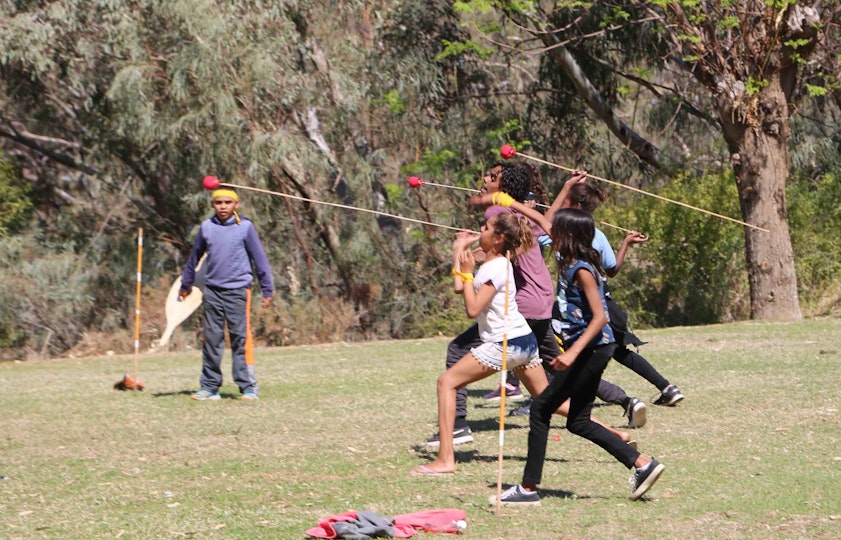
Djamu Regional, 2018
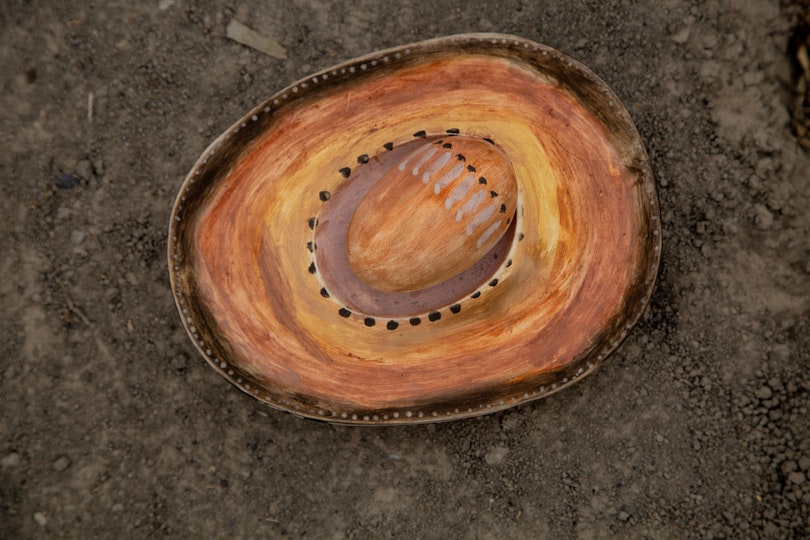
Djamu Regional, 2019
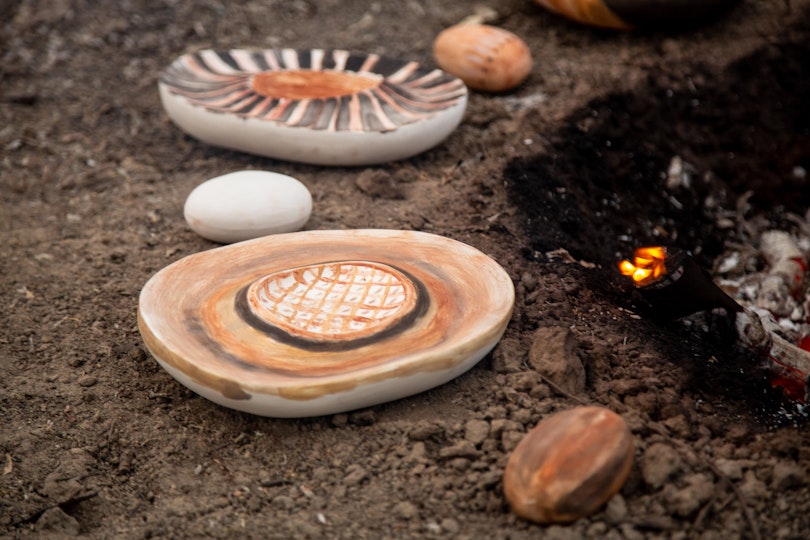
Djamu Regional, 2019
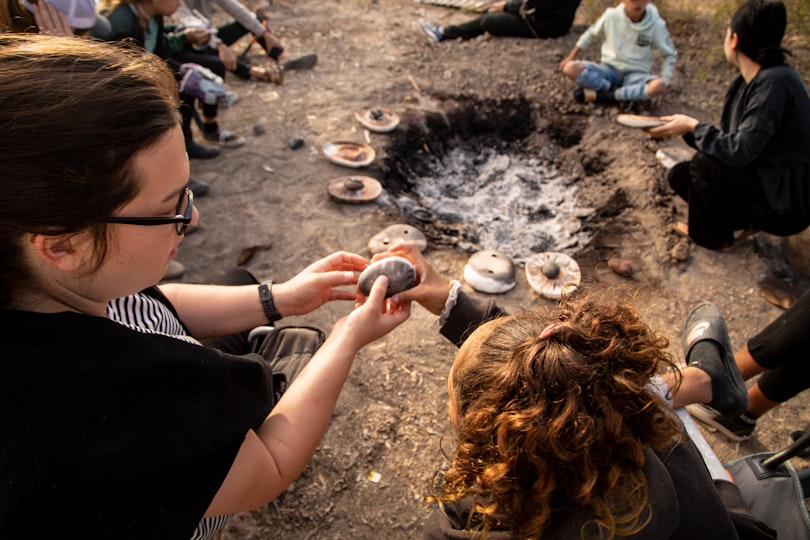
Djamu Regional, 2019
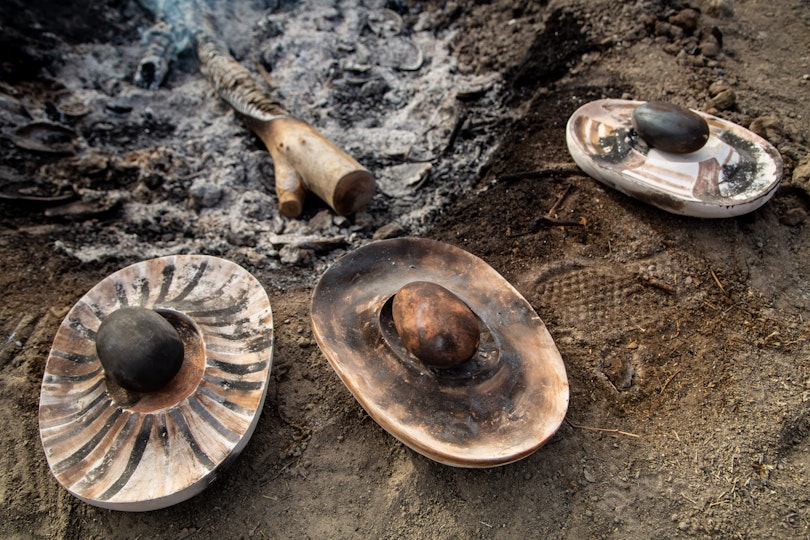
Djamu Regional, 2019
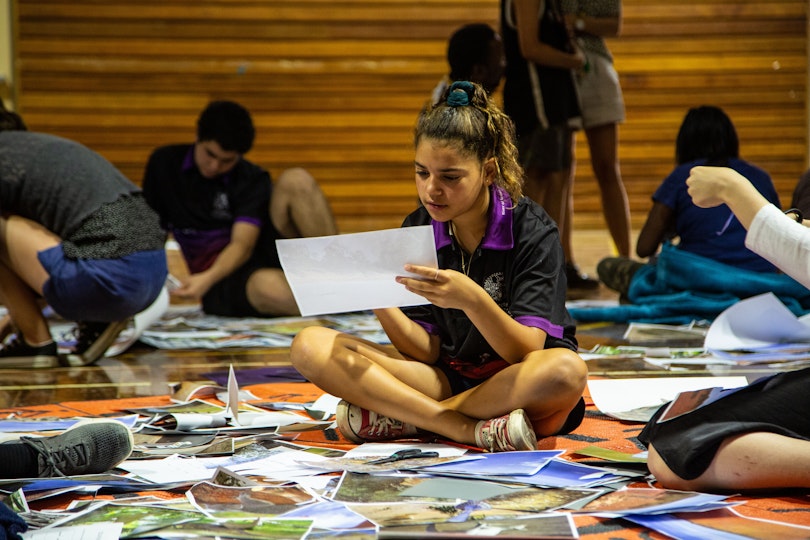
Djamu Regional, 2019
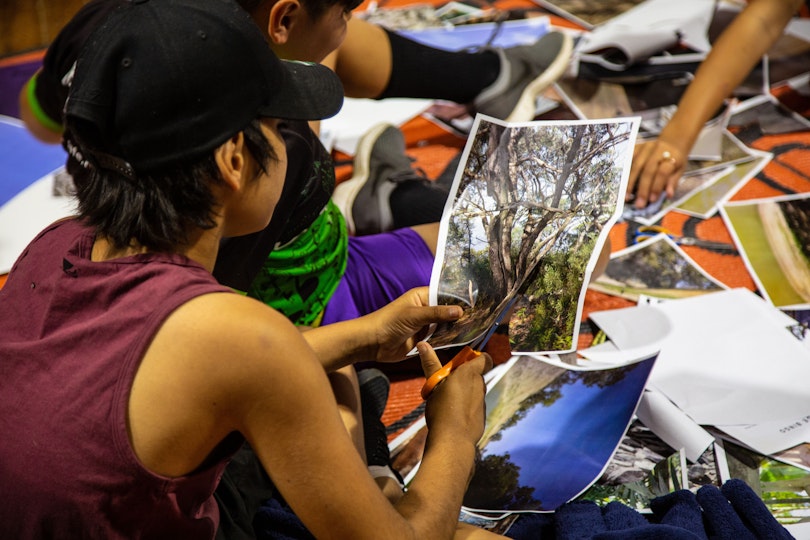
Djamu Regional, 2019
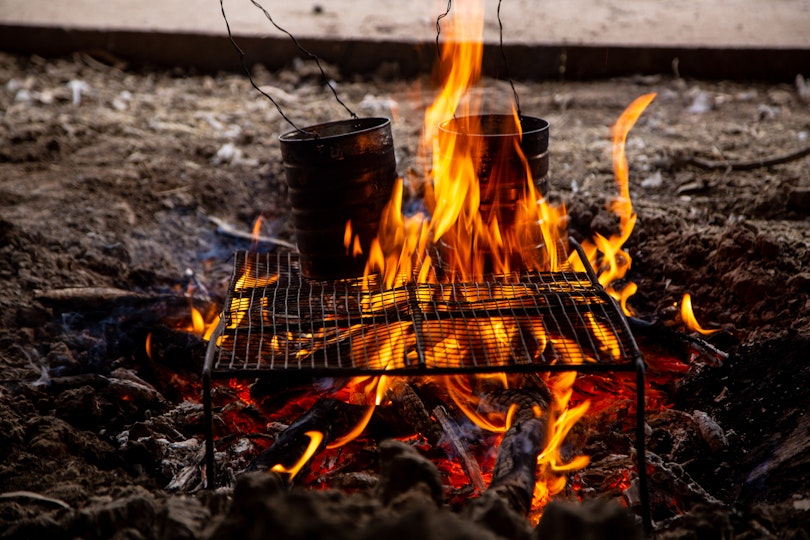
Djamu Regional, 2019
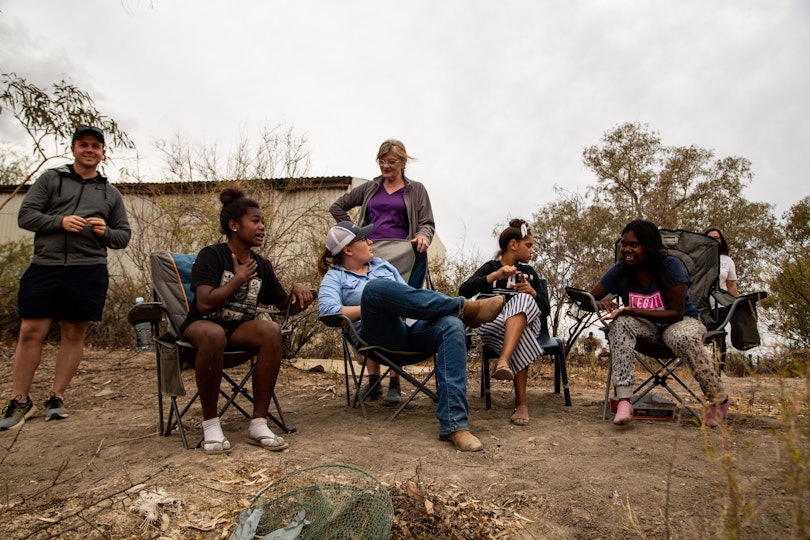
Djamu Regional, 2019
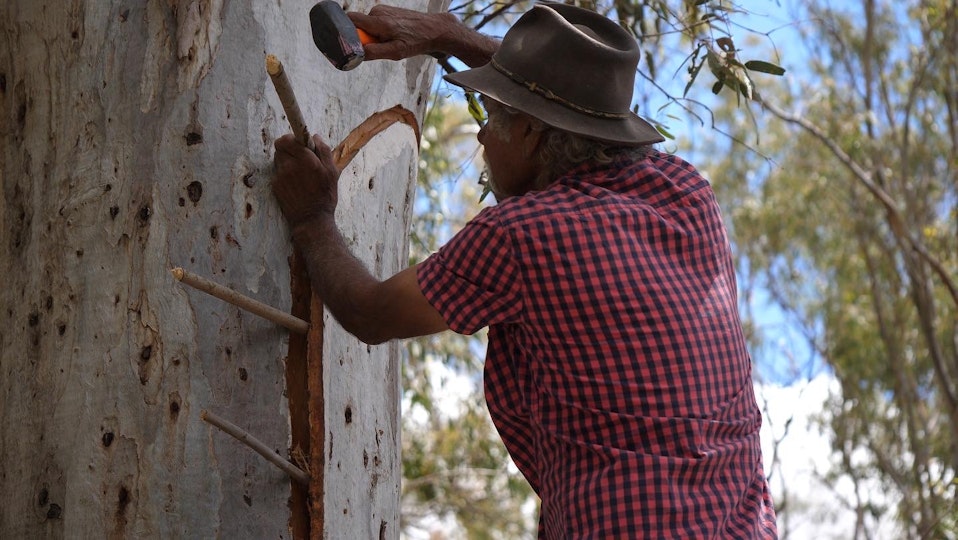
Djamu Regional, 2020
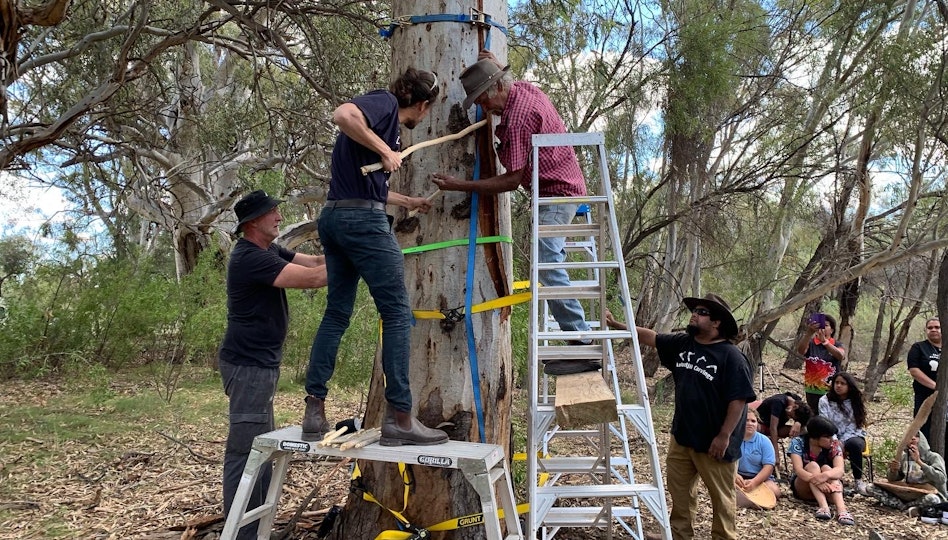
Djamu regional, 2020
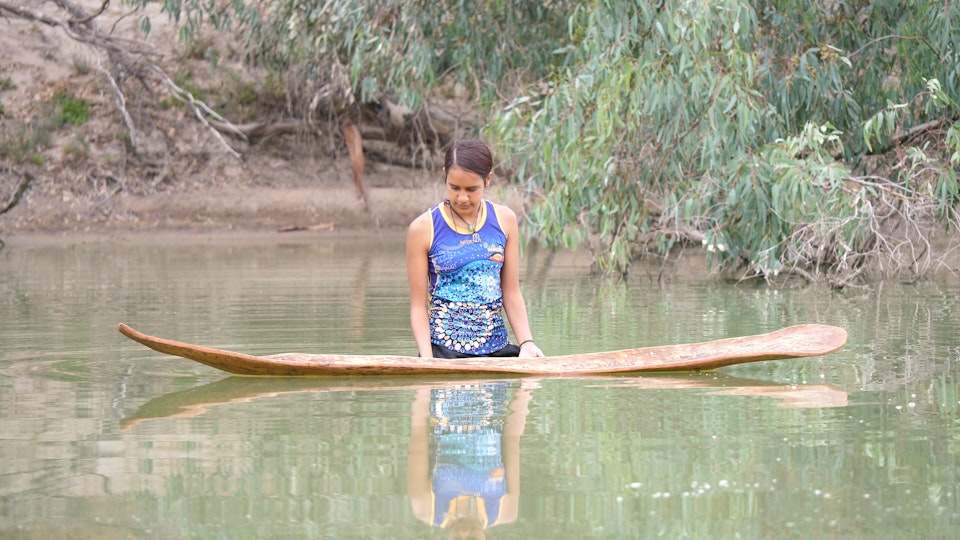
Djamu regional, 2020
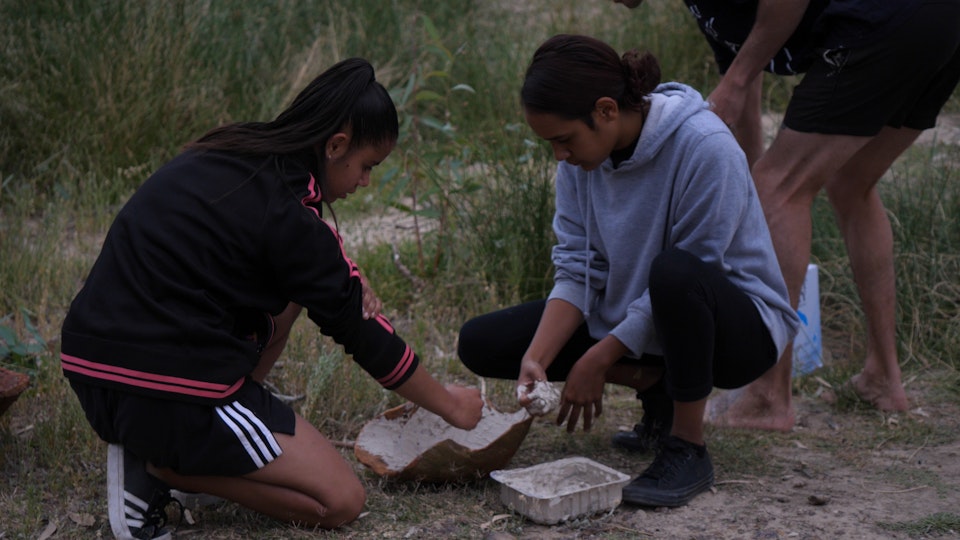
Djamu regional, 2020
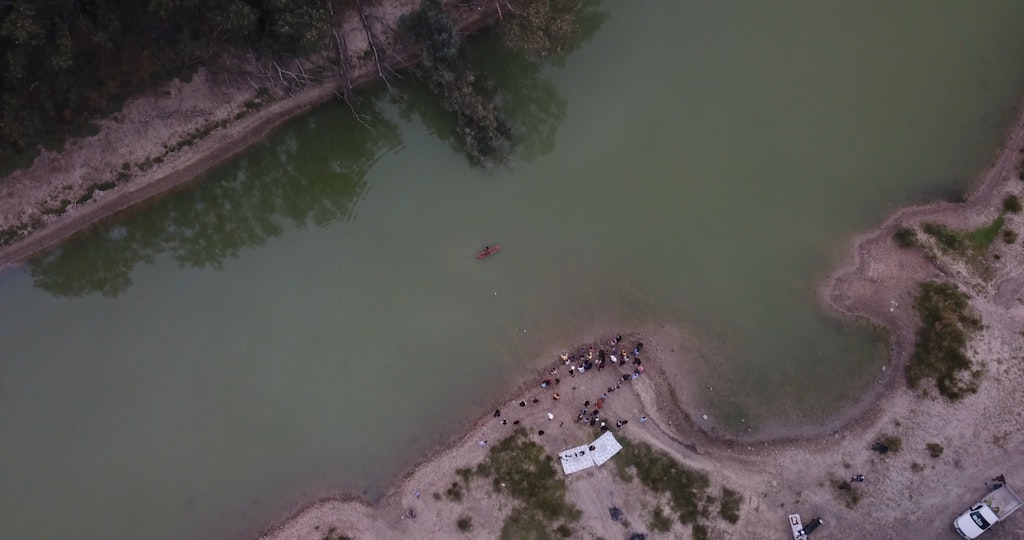
Djamu regional, 2020
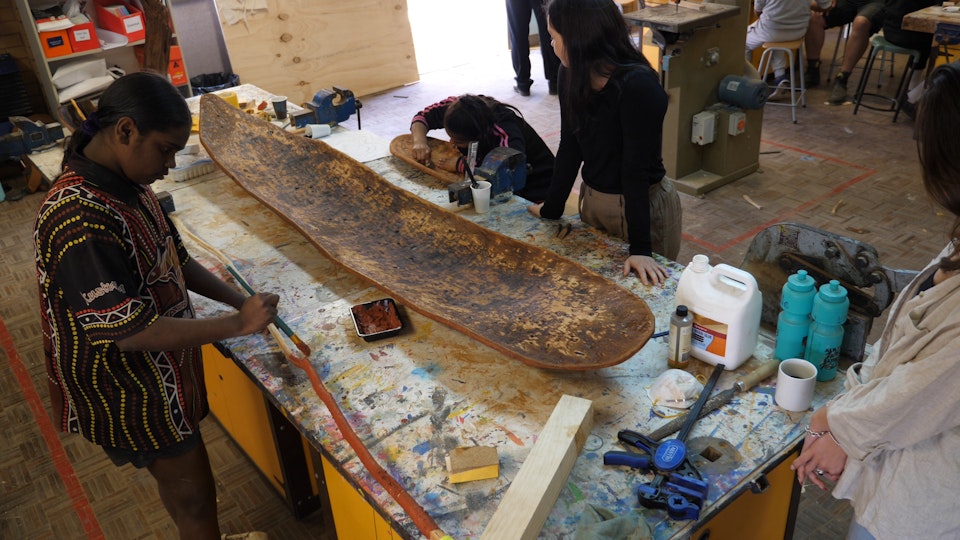
Djamu regional, 2020
It was special to sit and listen to Uncle Badger and learn about how our old ancestors would build canoes and other objects needed to live on the river.
Djamu Regional offers a unique project-based model that supports Aboriginal and Torres Strait Islander young people in regional New South Wales. The program creates opportunities for artists, communities, partner institutions and the Gallery to collaborate on the development and delivery of sustained projects that meaningfully respond to the needs of Aboriginal and Torres Strait Islander communities in regional New South Wales.
-
History and development
In 2017, the Gallery received support to develop Djamu Regional an iteration of the successful Djamu Program for Indigenous Art Education which had been delivered onsite since 2009. Gallery staff visited Broken Hill Regional Art Gallery, Wilcannia Central School and Menindee Central School to consult with local stakeholders to inform the development of a program that best suited to community and student educational and cultural needs. Key stakeholders included local community, teachers and Broken Hill Regional Art Gallery staff.
In 2018, James Tylor, Gallery staff and Broken Hill Regional Art Gallery educators delivered a series of workshops in Wilcannia, Broken Hill and Menindee. Inspired by Tylor’s practice of re-learning Kaurna knowledge, each day students participated in traditional games; Marngrook, Ngunyawayiti and Kardi Wapa. This activated learning engaged students in the experience of each game and led to enquiry about processes of production and materiality of each object. Tylor kindly gifted a set of objects to Wilcannia and Menindee Central Schools to use following the workshop.
In 2019, the Gallery returned to Wilcannia to deliver a markedly different program. Artists Hayley Millar-Baker and Kirra Weingarth facilitated a three-day intensive photographic and ceramics program for students at Wilcannia Central School. Generously supported by Wilcannia Central School staff and local community, the program also featured an overnight camp and ceramic pit firing at nearby Yeoval Station.
-
Impact
During the 2019 Program, Gallery staff were fortunate enough to visit a series of scarred canoe trees, cut along the banks of the Barka (Darling River). In weeks following the program, Central West New South Wales experienced much needed rainfall, bringing life back to the region. Responsive to these events and having established relationships with local Barkandji artist Badger Bates and Ngiyaampa artist Anthony Hayward, the Gallery proposed an ambitious third iteration of Djamu Regional focusing on the revival of canoe cutting practices in Wilcannia.
In early conversations with Badger Bates, he outlined the historical significance such a program would have for the Wilcannia community, stating:
My older brother Johnny Bates was the last real canoe maker in Wilcannia. Myself and my first cousin Cyril Hunter, who lives in Wilcannia, might be the only two that remember them cutting out the canoes in the 1950’s. There are so many canoe trees around Wilcannia, it is very unusual - really old ones, one cut out by mine and Cyril’s grandmother around 1922, some in the 1940’s and 1950’s. One was cut out by Cyril’s brother in the 1970’s for the school, but it got burnt when they were curing it. It would be a great way of connecting the kids with their country.
In 2020-2021, 40 ATSI secondary students at Wilcannia Central School participated in the Barkandji Canoe Project. Over two full weeks in 2020, students worked with Barkandji artists Badger Bates and David Doyle and Ngiyaampa artist Anthony Hayward to cut a river red gum bark canoe and series of coolamons. Floated in December 2020, the project marked the first time in over 70 years that a river red gum bark canoe had been cut from the Wilcannia region. In 2021, the Gallery will return to the region to deliver the second iteration, which aims to build students capacity to carry the tradition of canoe making.
-
Artists
2018
Judy Watson, James Tylor2019
Hayley Millar Baker, Kirra Weingarth2020
Badger Bates, Anthony Hayward, David Doyle2021
Badger Bates, Anthony Hayward, David Doyle
The week has been incredibly inspiring. It’s been exciting to see our students engaged in all the activities, the deep listening when the Gallery team have started explaining processes. Students that you wouldn’t expect to be engaged in these types of activities were surprising with the way they were listening, looking and getting involved. It’s given us as teachers, lots of ideas to work toward. Being outside, being out on country and making, changes the way that you relate with students. It’s been a special experience.